(September 12, 2022) “My biggest challenge in the journey has been people,” says Anil Srivastsa, “Most people are ready to donate money to an organisation such as Akshaya Patra because they feed people. But, when I tell them that they should donate their organ to others, they are hesitant as they do not have enough knowledge about it.” Having dedicated his life to the cause of organ donation, public speaker Anil’s biggest challenge has been to raise awareness about a subject he says “is more of a social issue than medical.”
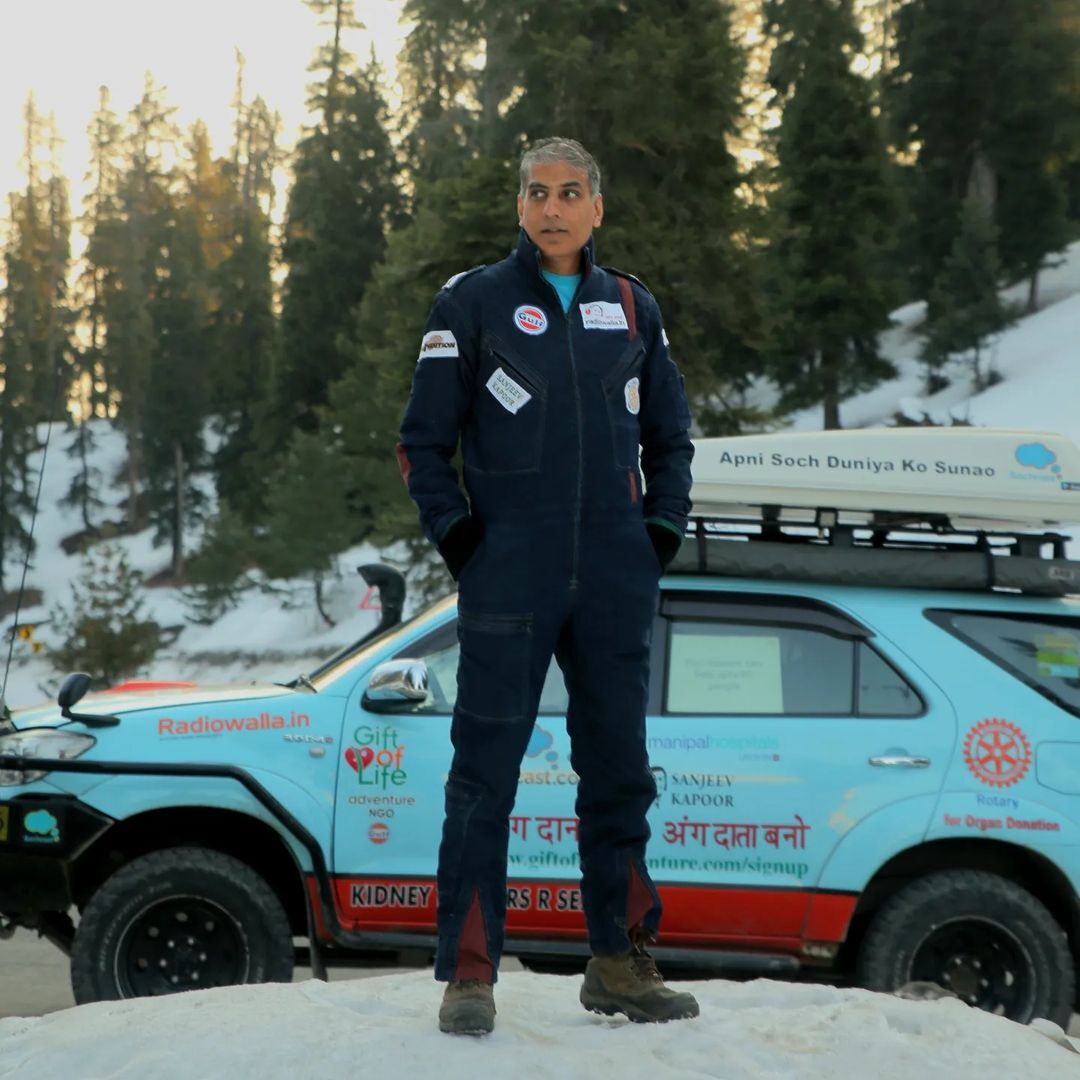
Anil Srivastsa, public speaker, life coach and entrepreneur
The Mumbai-born life coach and entrepreneur embarked on this journey about seven years ago, after a fateful incident. “In 2014, my brother, Dr. Arjun Srivatsa was diagnosed with chronic renal failure. During his treatment, we got to know that he will require a transplant. When the doctor consulted us, I was more than happy to donate one of my kidneys. However, the more I researched organ donation in India, the more I found how people were not only hesitant but also ignorant about how transplant works. Many didn’t know that donors can lead a healthy, normal life after they donated their kidney or part of their liver. Also, many people shy away from donating organs of their relatives who have passed away. I am working towards dispelling the myths around the matter,” he shares, as Anil connects with Global Indian from the USA.
In the last seven years, Anil has undertaken several overland expeditions to raise awareness about the matter. Covering thousands of kilometres, the entrepreneur has driven across 44 countries by road, including Denmark, Central Asia, Myanmar, USA , sharing his story with over 1,50,000 people and encouraging them to donate organs. A gold medalist at the World Transplant Games, Anil is also the founder of the NGO Gift of Life Adventure.
Inspired by a fateful event
Growing up in a fauji household, Anil shares that he was brought up in a disciplined environment. “I had a very normal upbringing. My father was in the Indian Navy and my mother was a journalist. She would take me and my brother along for the interviews she took, so I was well-exposed to the world and that allowed me to learn about several things that kids my age didn’t get to learn at school.”
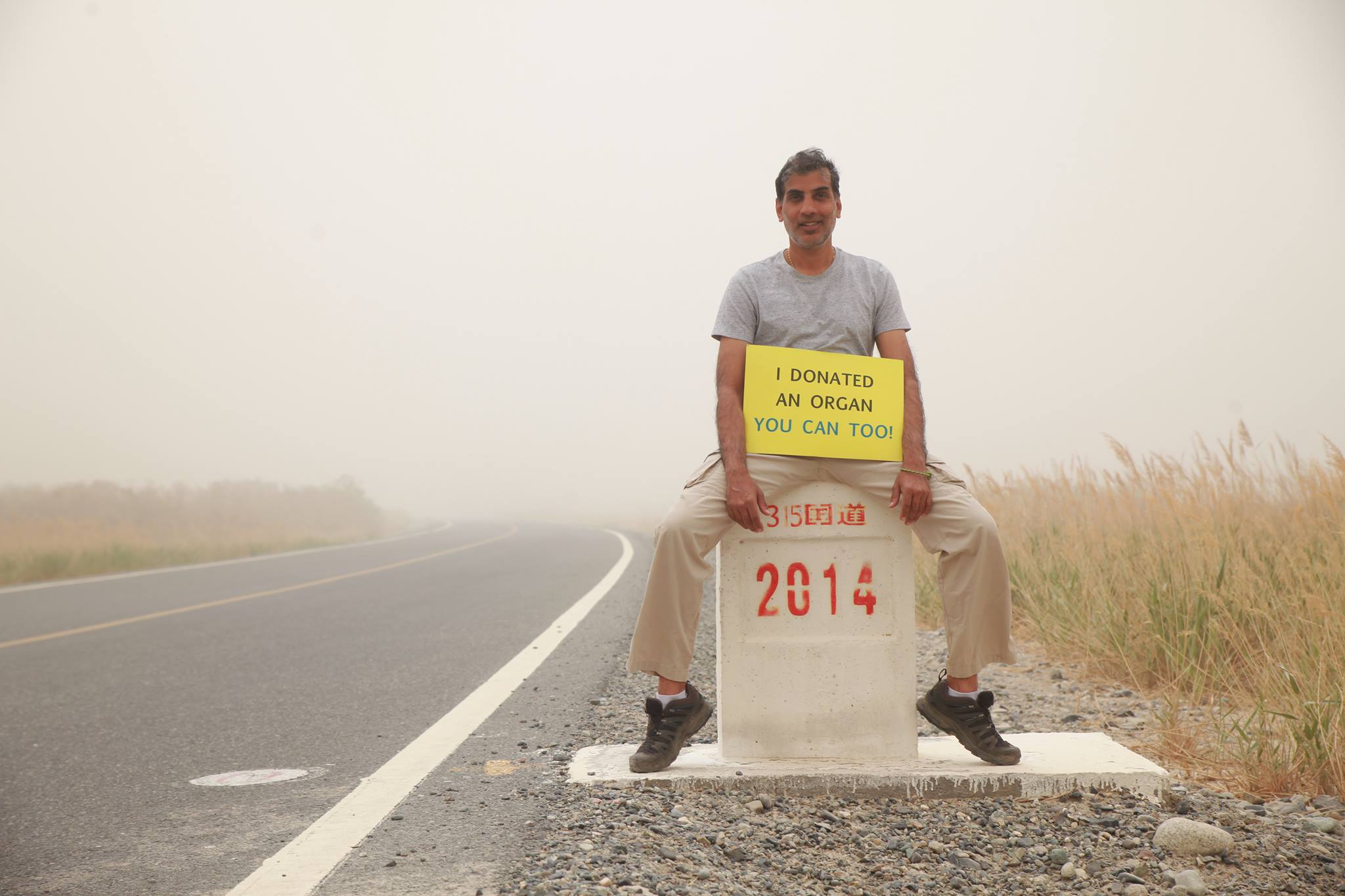
After finishing his bachelor’s in criminology from Mysuru, Anil left for Kutztown University of Pennsylvania, where he pursued a master’s in telecommunication management in 1993. His first job was at Medstar Television Inc as the head of production and research for the first-ever reality-based forensic series on television which used a ‘murder mystery approach’ to documentary storytelling. He later produced and hosted a radio show, Anil ki Awaaz, which was aired in North America. “I have a career spanning over 35 to 40 years. And in those years, I have worked in various companies and held many senior positions,” shares the public speaker, who was also the CEO of the Indian Premier League team, Kings XI Punjab.
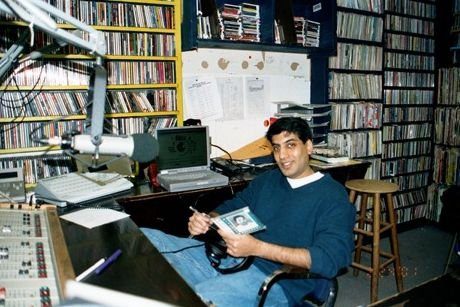
Anil at the WPRB studios. 1999
Anil’s life turned around when his brother was diagnosed with a kidney disorder. Speaking about his first introduction to organ donation, he says, “In 2001, when I was living in the United States, my neighbour donated her kidney to her sister-in-law. While I had heard about organ donation, it was the first time that I witnessed it. However, I didn’t delve deep into the subject back then. It was only when the doctors informed us that they will have to transplant Arjun’s kidney is when I started researching the subject.”
Impacting lives
Soon after his brother’s successful surgery, Anil started spreading the word about organ donation and how it can save several lives across the globe. However, it was an uphill task initially as people not just lacked basic knowledge on the subject but many were hesitant due to several social stigmas. “The religious and spiritual leaders have a great role to play in encouraging people to come forward and donate vital organs.” Narrating an incident, the public speaker, shares, “I once met a couple of a particular community, which doesn’t even allow blood donations. When I asked them what would they do if their child needed a blood transfusion, they said that they would let them die if that is what the god wished.”
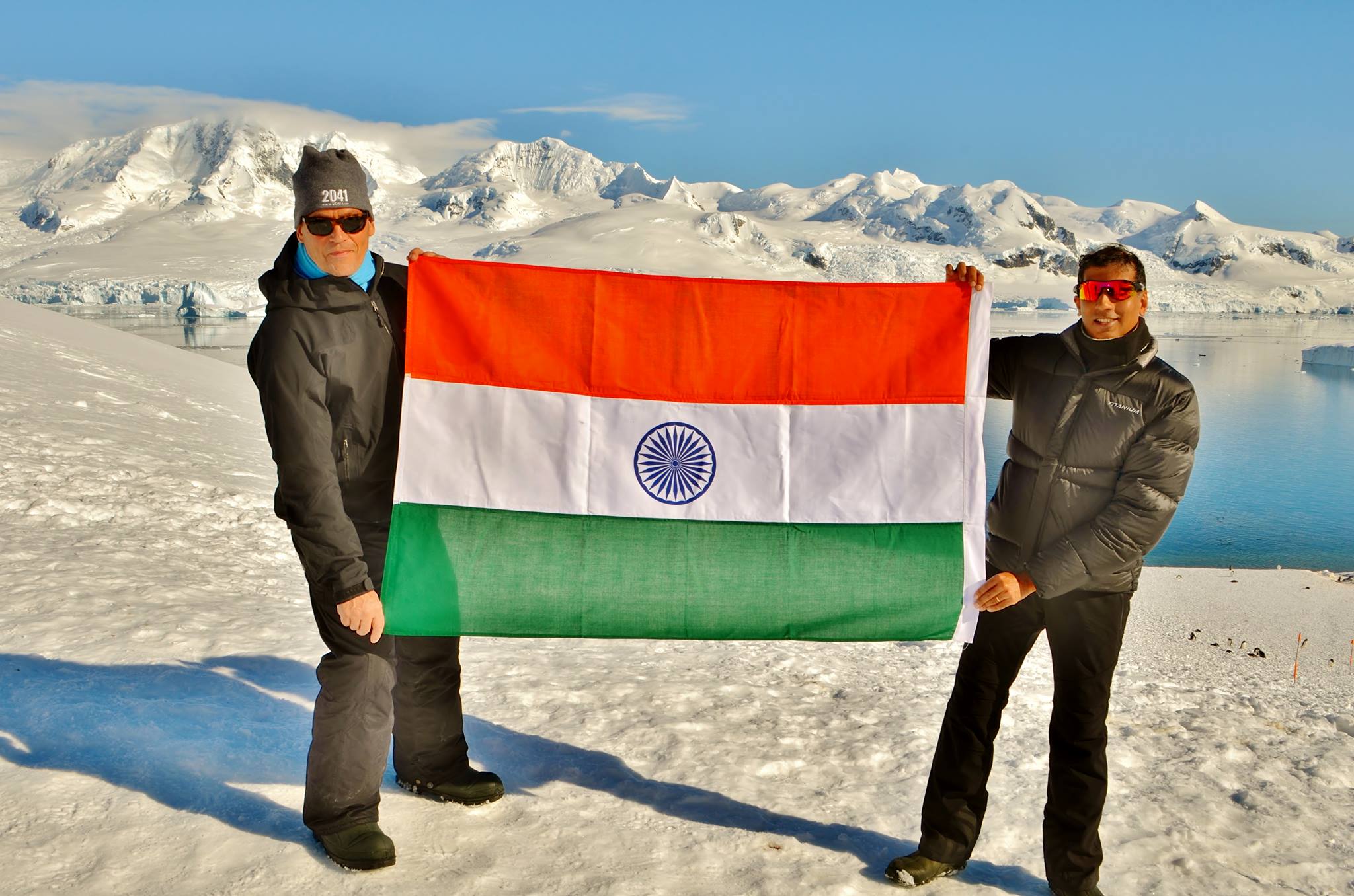
Anil, during his expedition in Antarctica
Several such conversations with people from different regions and communities motivated Anil to embark on this extraordinary journey. And up till now, he has impacted over one lakh people by encouraging them to donate their organs. Speaking about one such incident, he says, “My car is decorated with various slogans and messages about organ donation. So, once while I was in Gujarat, I was spotted and stopped by a couple whose daughter was diagnosed with a liver disorder and needed a transplant. Despite several attempts, they weren’t able to find a donor. When I got to know about the case and met the medical team handling the case, I spoke to the family about how a live person can also donate a part of their life – something they didn’t know about. The mother agreed to donate her liver, and today that girl is studying to become a lawyer.”
Donning many hats
The public speaker, who is currently on a 56,000 km drive, is on his way to take part in the ‘World Transplant Games’ that will be held in Australia in 2023. “I have been representing India at the World Transplant Games – which is held for either donors or recipients of an organ. In 2019, I won gold for India in ball throwing. My brother, Arjun, also won gold in golf. In a lighter vein, it was my own kidney winning the gold because he has one of mine.” laughs Anil.
Anil is also the founder of Sochcast, which is a content creation and distribution platform, especially for women. “I also started Radiowalla Network, which is the most scalable, dynamic, and valuable internet audio distribution and content platform,” he shares before signing off.

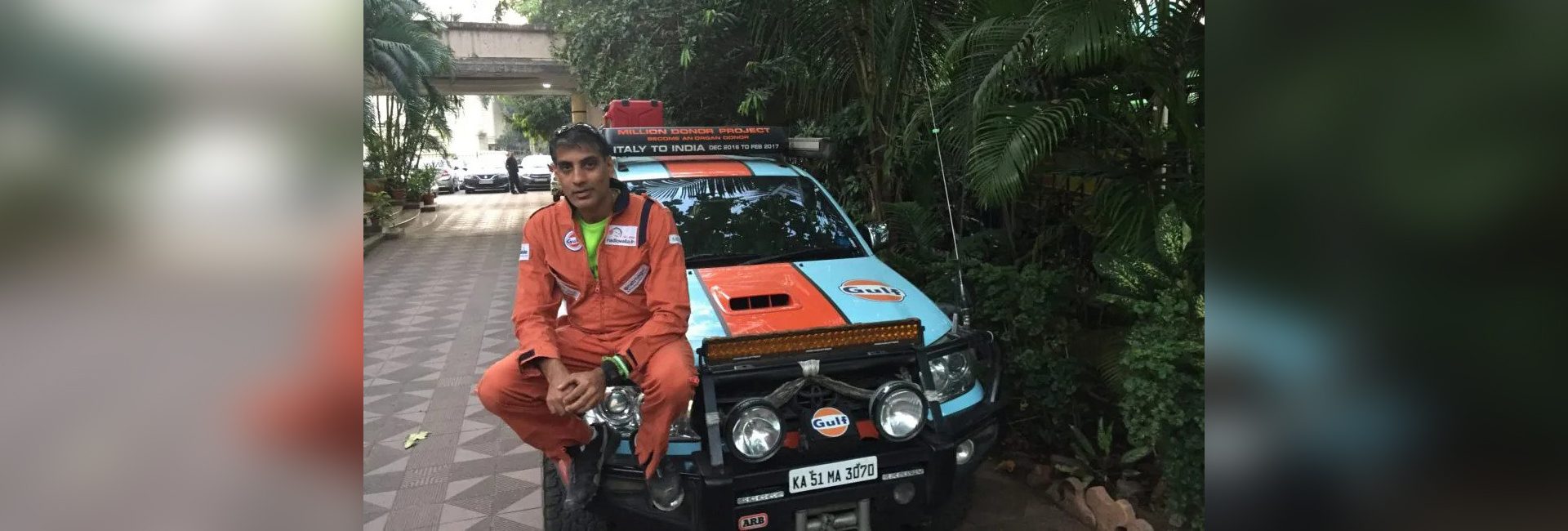

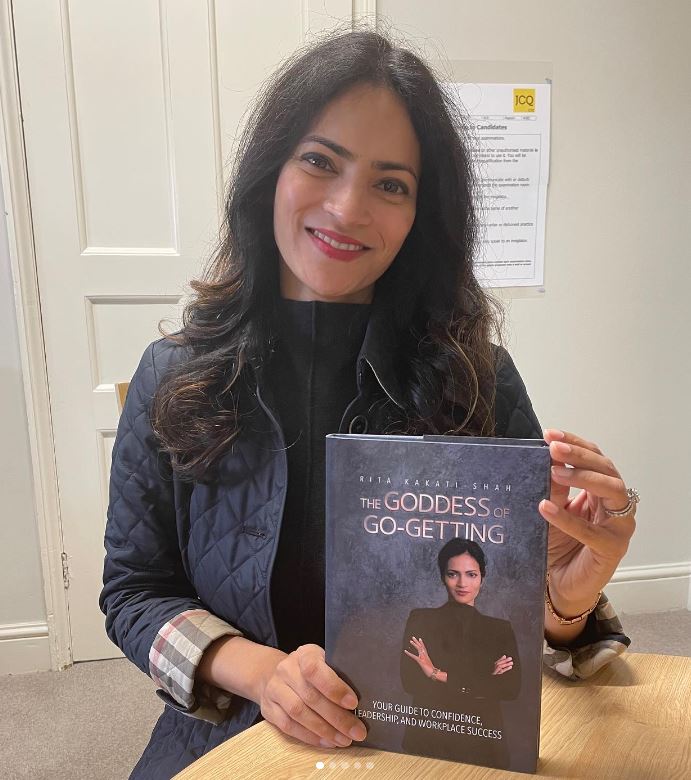 Rita Kakati-Shah with her book[/caption]
Rita Kakati-Shah with her book[/caption]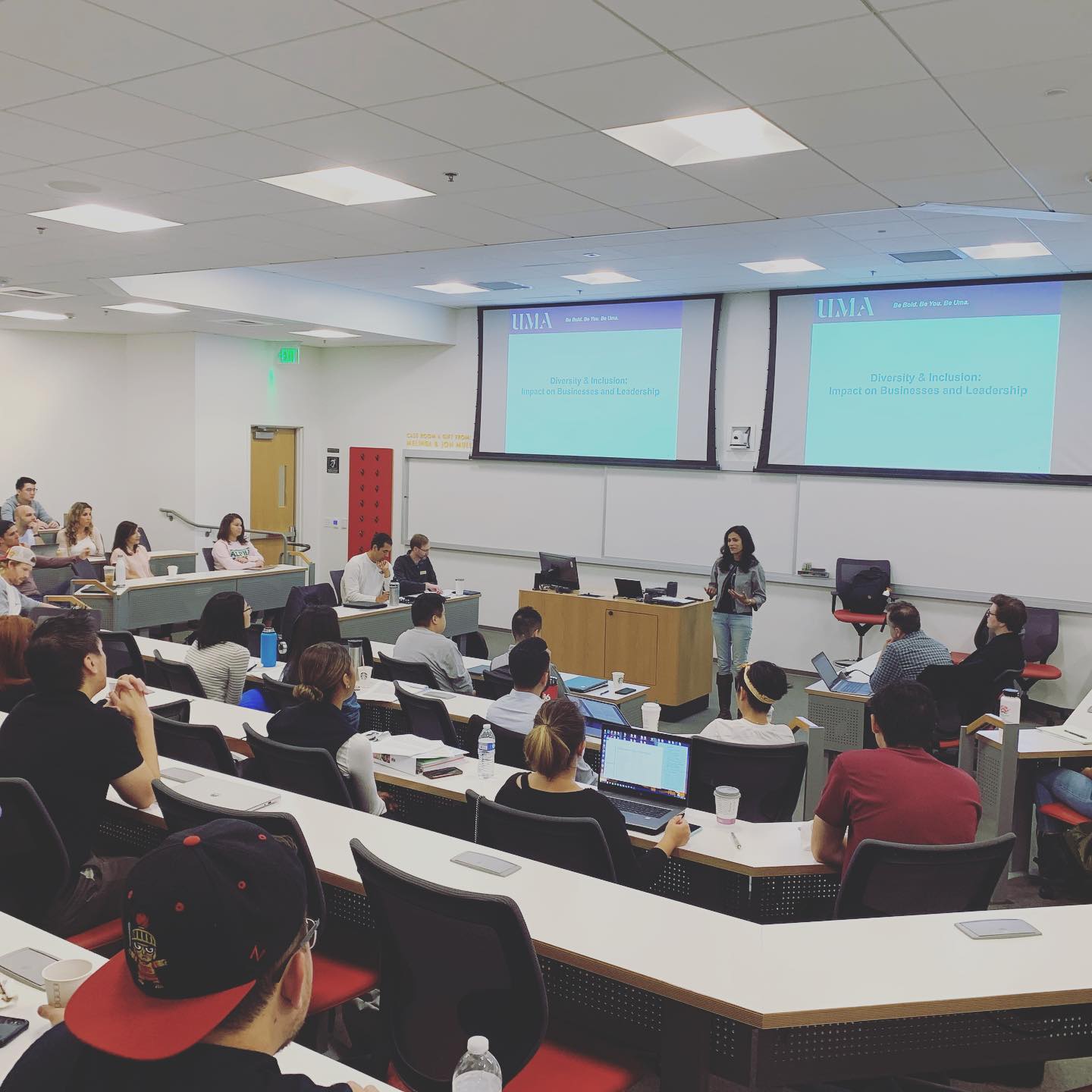 Rita Kakati-Shah addressing students at the USC Marshall School of Business[/caption]
Rita Kakati-Shah addressing students at the USC Marshall School of Business[/caption]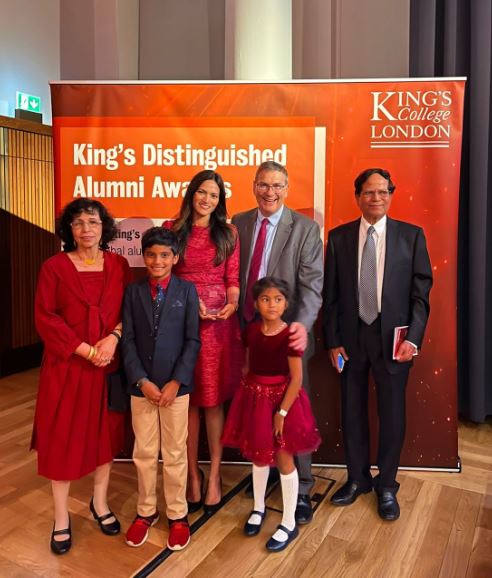 Rita Kakati-Shah with her family at King's Distinguished Alumni Awards ceremony[/caption]
Rita Kakati-Shah with her family at King's Distinguished Alumni Awards ceremony[/caption]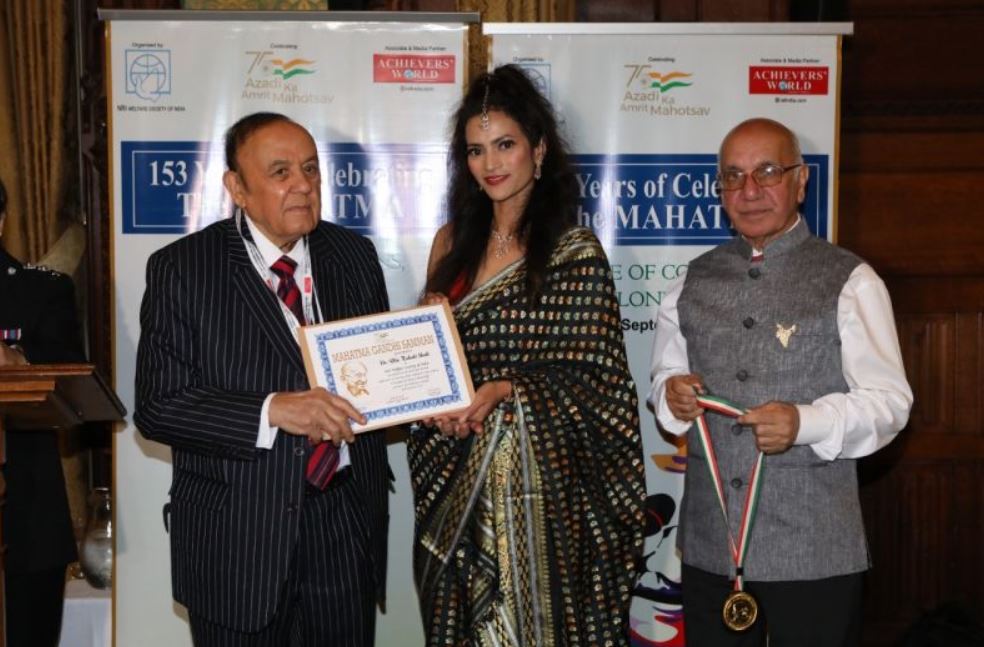 Rita Kakati-Shah receiving Mahatma Gandhi Samman medal at the Palace of Westminster, House of Parliament in London[/caption]
Rita Kakati-Shah receiving Mahatma Gandhi Samman medal at the Palace of Westminster, House of Parliament in London[/caption]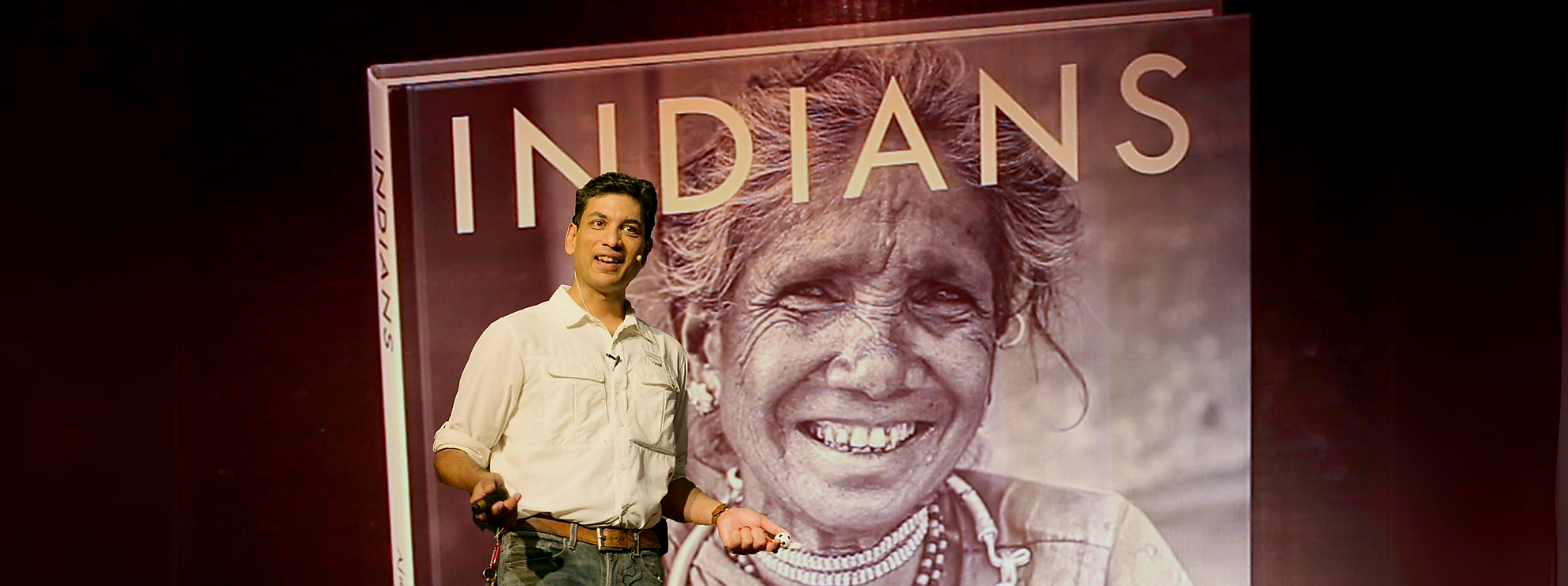
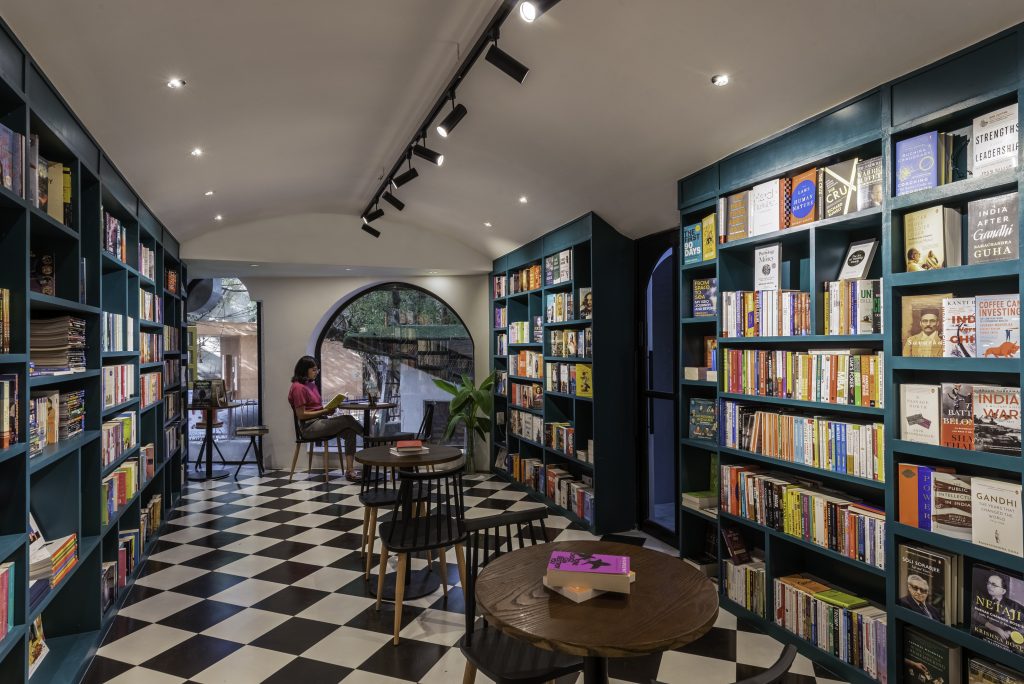 Kunzum, Delhi[/caption]
Kunzum, Delhi[/caption]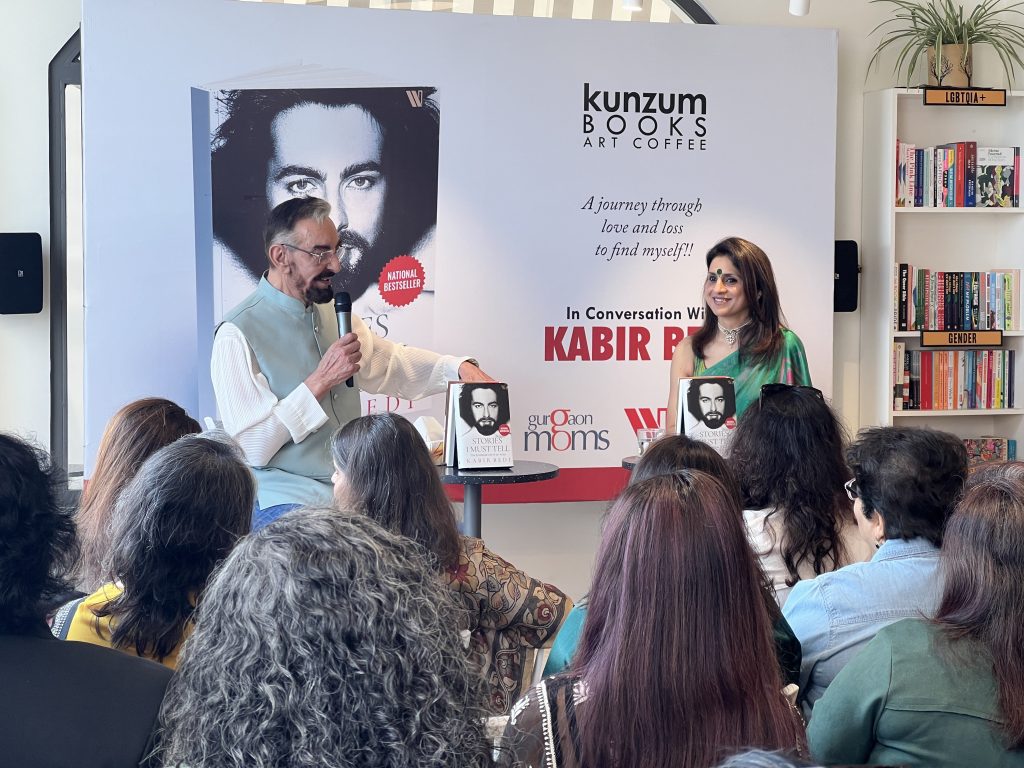 Kabir Bedi at Kunzum[/caption]
Kabir Bedi at Kunzum[/caption]
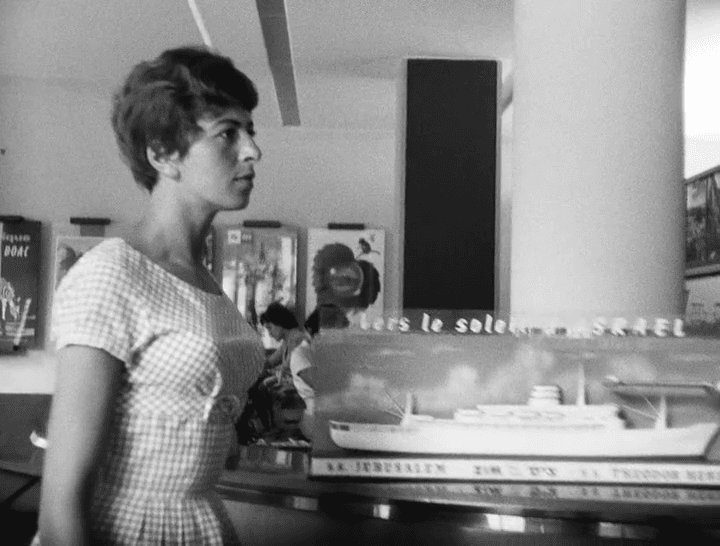 Lila Lakshmanan in a still from Breathless[/caption]
Lila Lakshmanan in a still from Breathless[/caption]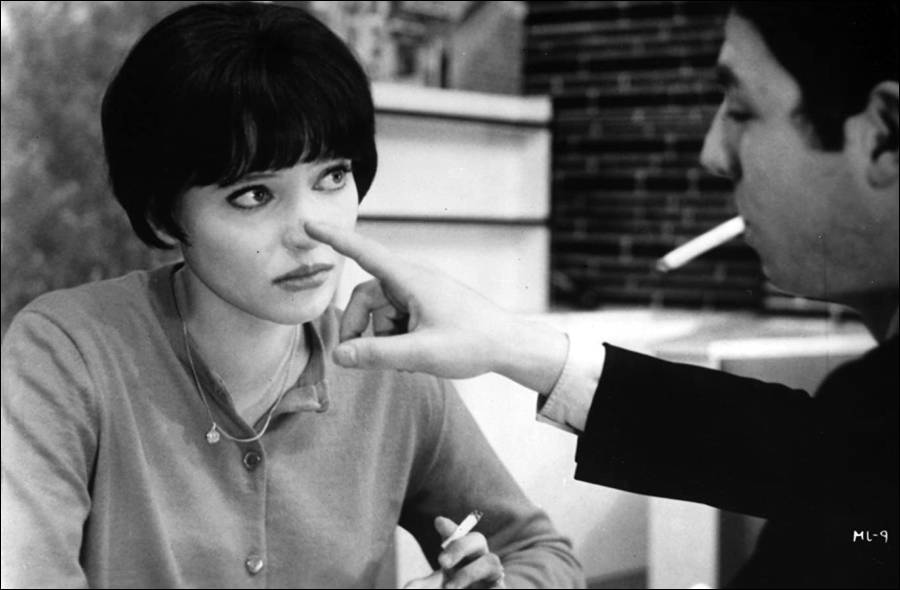 Anna Karina in a still from Jean-Luc Godard's Virve Sa Vie[/caption]
Anna Karina in a still from Jean-Luc Godard's Virve Sa Vie[/caption]
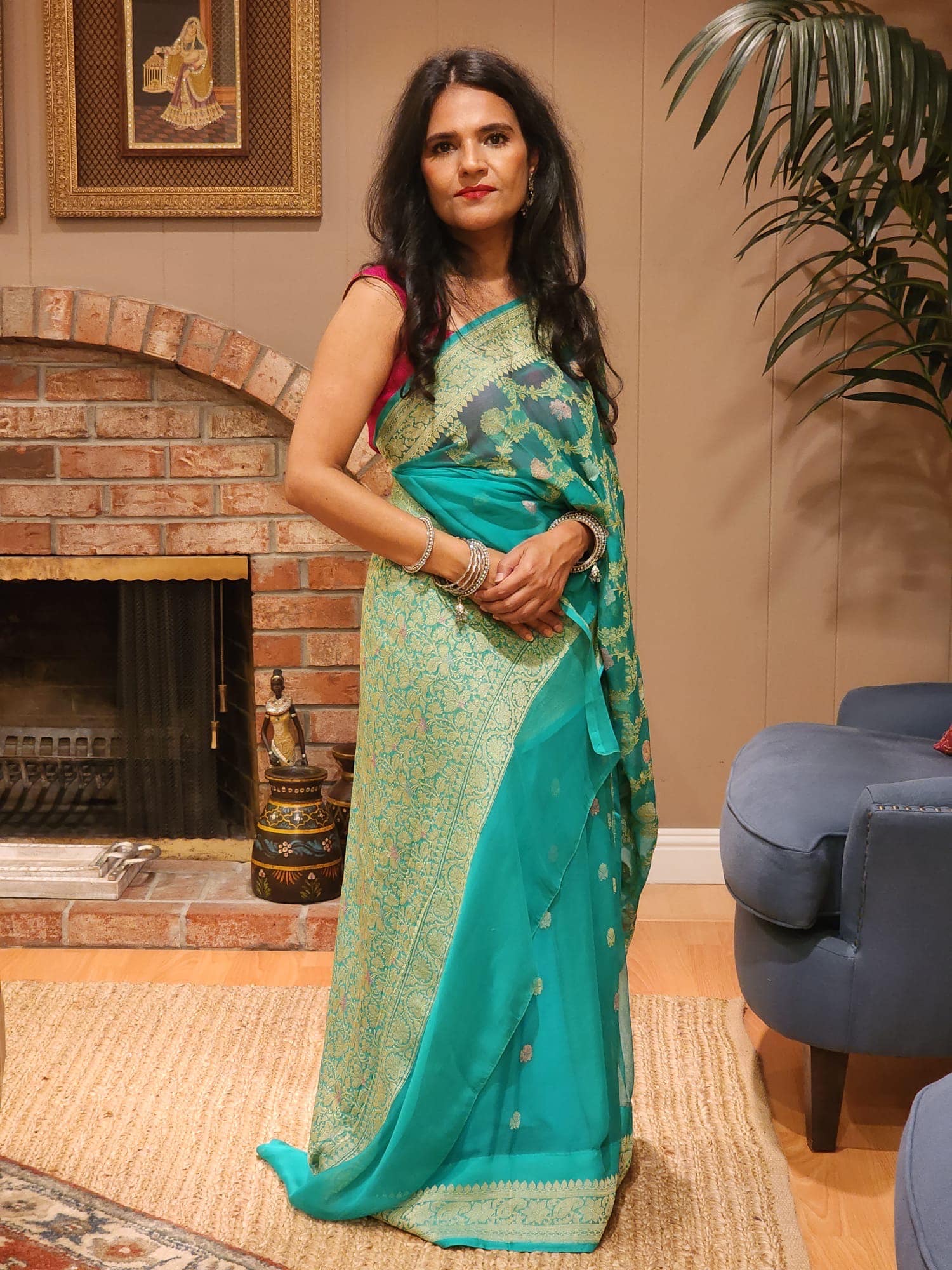 Entrepreneur Neena Pandey[/caption]
Entrepreneur Neena Pandey[/caption]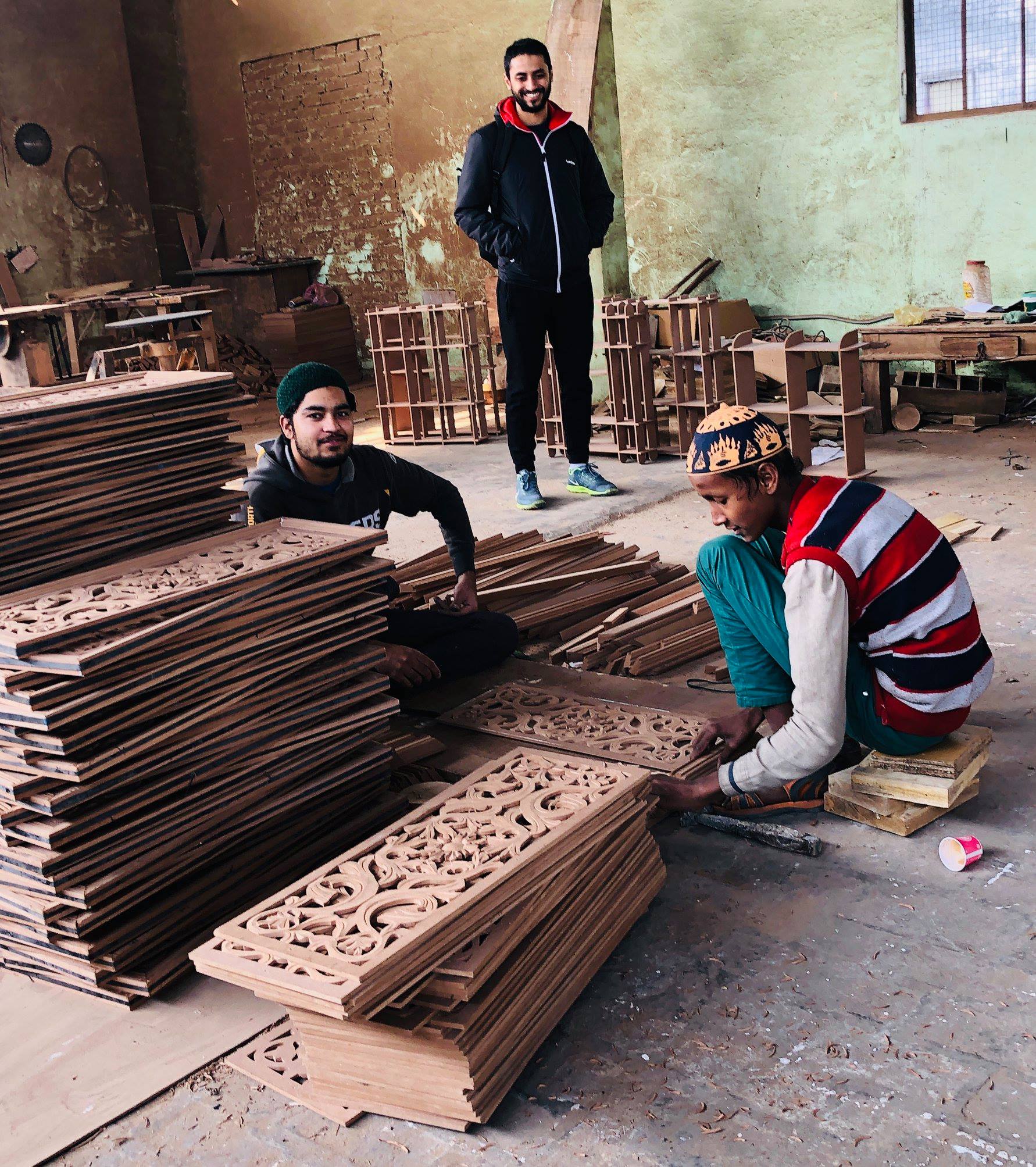 IndieRoots artisans at work[/caption]
IndieRoots artisans at work[/caption]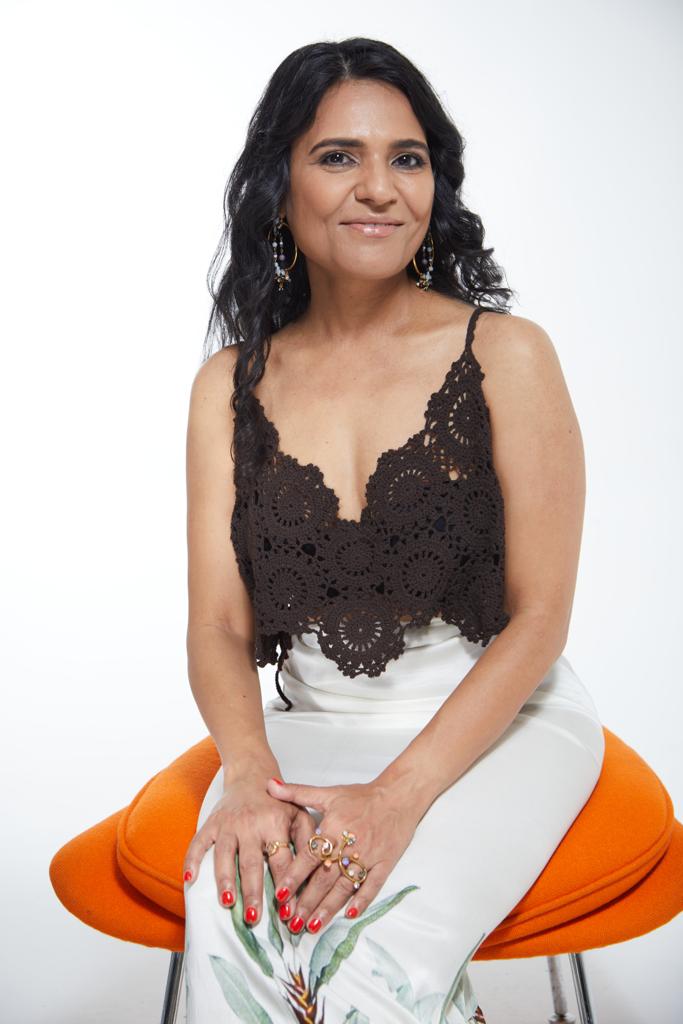
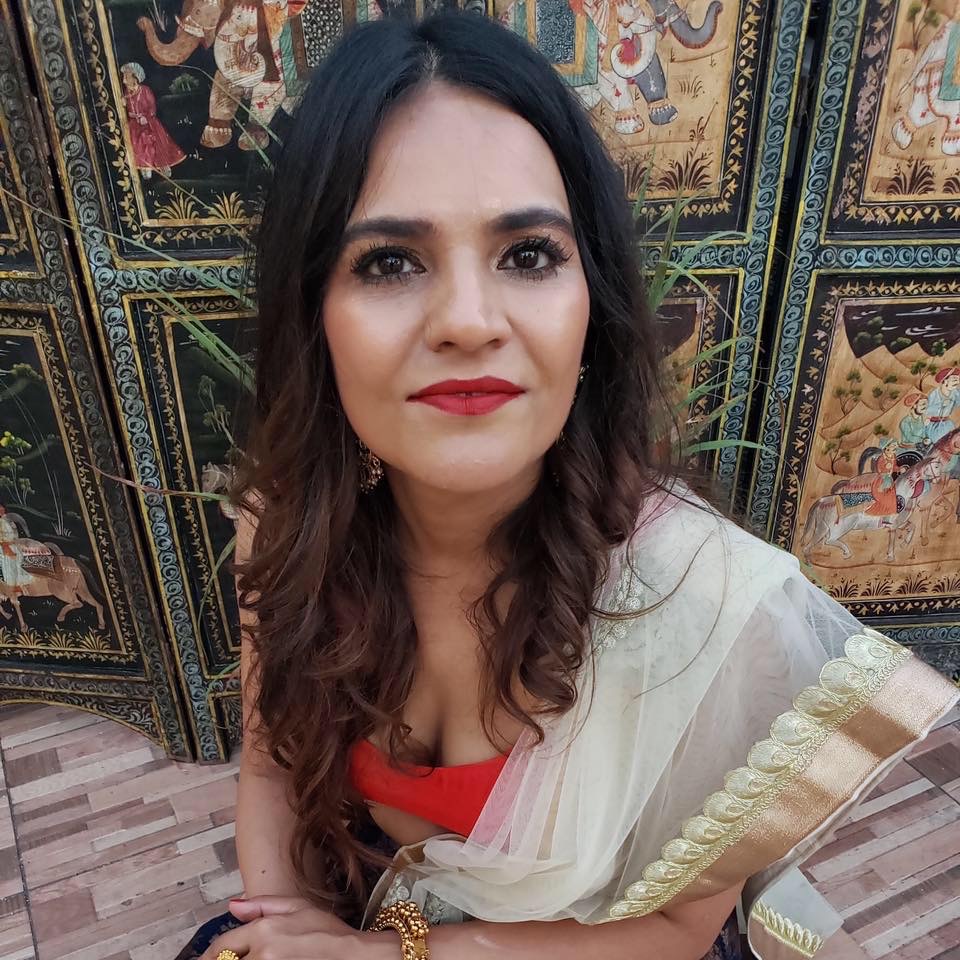 Entrepreneur Neena Pandey[/caption]
Entrepreneur Neena Pandey[/caption]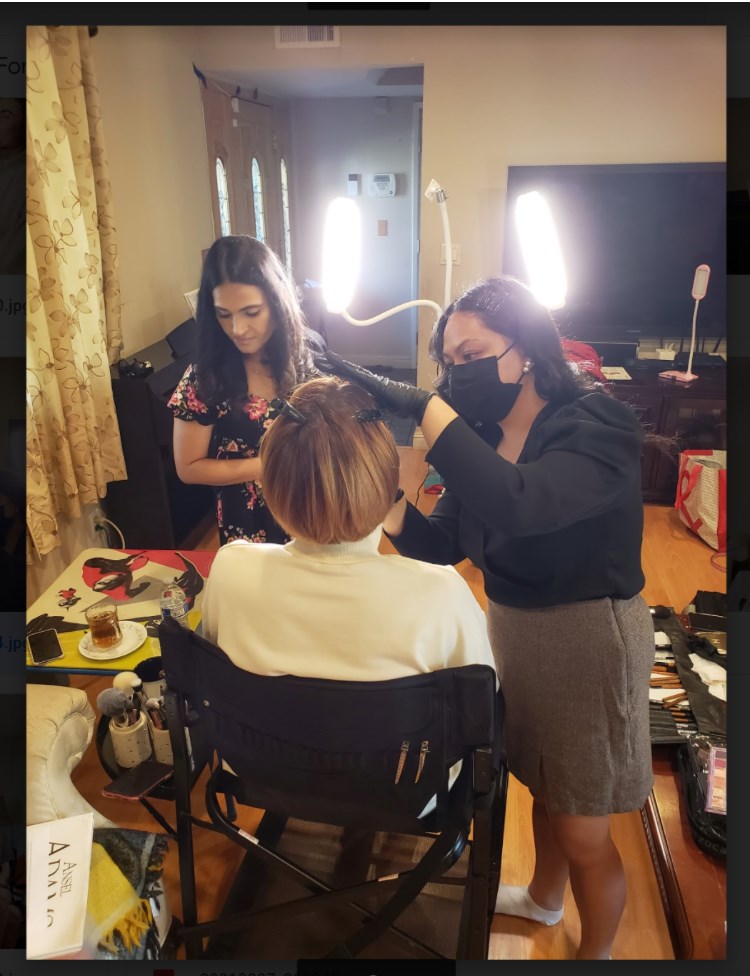 Neena during the photoshoot for The String Code[/caption]
Neena during the photoshoot for The String Code[/caption] A collection from The String Code[/caption]
A collection from The String Code[/caption]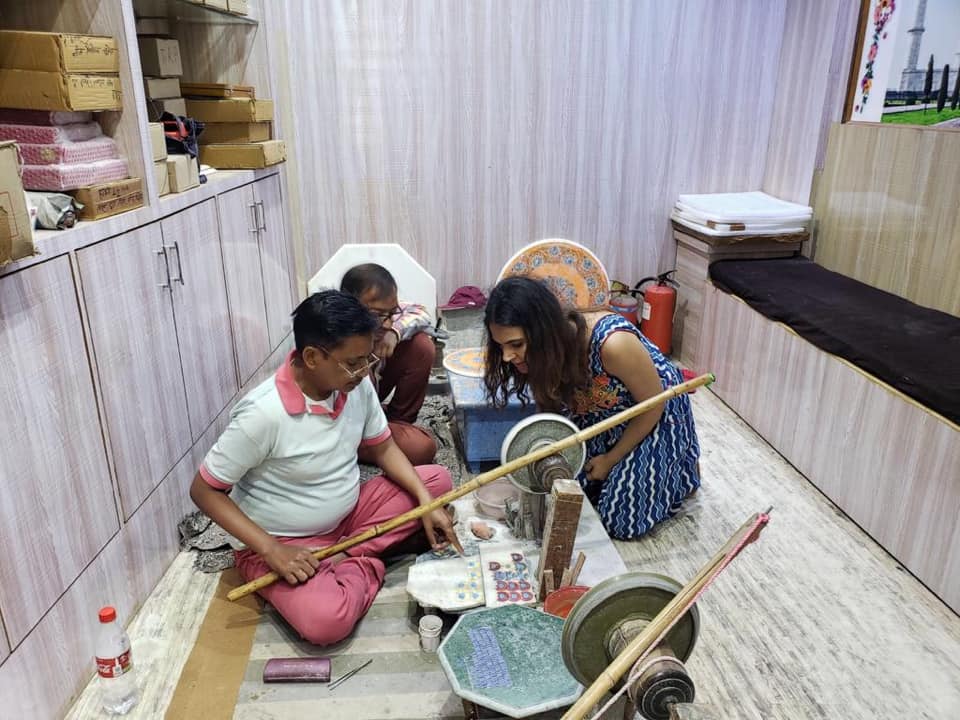 Neena with some of the artisans of IndieRoots[/caption]
Neena with some of the artisans of IndieRoots[/caption]
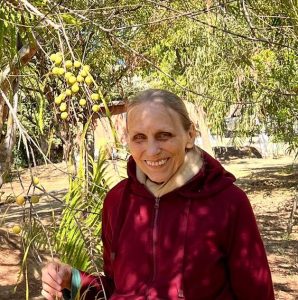 Ayo Oum Shanti[/caption]
Ayo Oum Shanti[/caption] One of the ghats of the Ganges in Varanasi[/caption]
One of the ghats of the Ganges in Varanasi[/caption]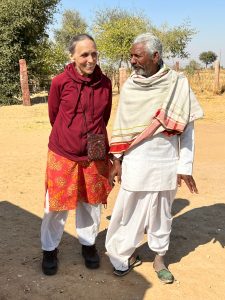 Ayo with a person from rural Rajasthan, India[/caption]
Ayo with a person from rural Rajasthan, India[/caption]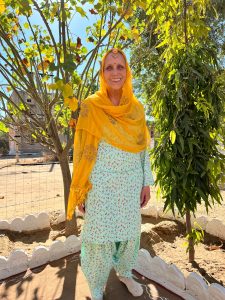 Ayo in Rajasthani attire[/caption]
Ayo in Rajasthani attire[/caption] Ayo in Kochi[/caption]
Ayo in Kochi[/caption]
Proud of him. Today I got a great opportunity from my school {KV Meg & Center } to him and have a talk.